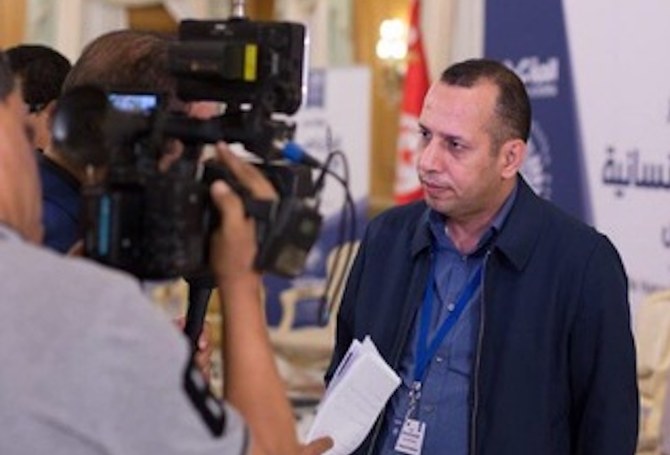BAGHDAD: An Iraqi analyst who was a leading expert on the Islamic State and other armed groups was shot dead in Baghdad on Monday after receiving threats from Iran-backed militias.
Gunmen on a motorcycle opened fire on Hisham Al-Hashimi, 47, outside his home in the Zeyouneh area of Baghdad, a family member said, speaking on condition of anonymity for security reasons. The family member heard five shots fired.
Security officials, speaking on condition of anonymity in line with regulations, said he was later pronounced dead at a hospital.
Al-Hashimi was a well-connected security analyst who appeared regularly on Iraqi television and whose expertise was sought out by government officials, journalists and researchers.
Weeks before his death, Al-Hashimi had told confidantes he feared Iran-backed militias were out to get him. Friends had advised him to flee to the northern city of Irbil, in the semi-autonomous Kurdish region.
He rose to prominence as an expert on the inner workings of IS and even advised the US-led coalition during its yearslong battle with the extremists.
After Iraq declared victory over IS in December 2017, he increasingly turned his attention to the Iran-backed militias that helped to defeat IS and now wield considerable power in the country. He was an outspoken critics of some of these groups, which have thousands of heavily armed fighters.
News of his killing spread quickly, with fellow researchers, journalists and others taking to social media to express their condolences.
The head of the United Nations Assistance Mission for Iraq, Jeanine Hennis-Plasschaert, expressed shocked at the assassination and said the UN strongly denounces the “cowardly act.” In a tweet, she called on the Iraqi government to quickly find the perpetrators and bring them to justice.
British Ambassador to Iraq, Stephen Hickey, said he was “devastated and deeply saddened” by the news of Al-Hashimi’s death. “Iraq has lost one of its very best — a thoughtful and brave man,” he tweeted.
Iraqi researcher Fanar Haddad said Al-Hashimi was a “strikingly bright mind and a true gentleman,” calling his death a “major loss and an unforgivable crime.”
Asked what Al-Hashimi’s death might signify to critical analysts, he said, “Critical voices are liable to be silenced if and when deemed necessary.”
Political analyst Ihsan Al-Shammari, a colleague of Al-Hashimi, said those who killed him wanted to “silence the voices that disagree with their opinion” and blamed the shooting on the proliferation of armed groups in the country.
Many saw his death as a worrying sign as the government struggles to rein in the militias.
The Iran-backed groups have been blamed for a spate of recent rocket attacks targeting US interests. Authorities launched a raid last week in which they detained 14 members of the powerful Kataib Hezbollah group in Baghdad, but all but one were released just days later, in what was widely seen as a capitulation by the government.
In a statement, Al-Kadhimi said Iraqi security forces would “spare no effort” in pursuing his killers.
“We will work with all our efforts to confine arms to the state, so that no force will rise above the rule of law,” the statement said.
In some of his final tweets before he was killed, Al-Hashimi lamented the country’s bitter divisions and the corruption plaguing its political system.
“The rights, blood and dignity of Iraqis have been lost, and their money gone into the pockets of corrupt politicians,” he tweeted Sunday.






























